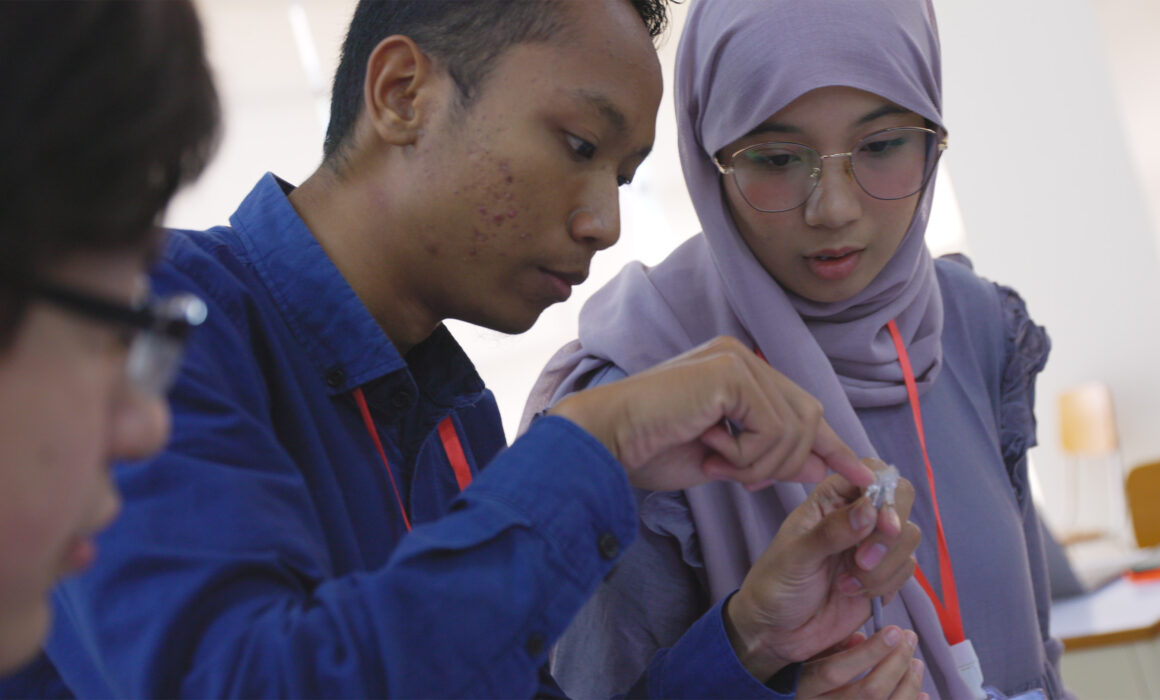APIE Camp #05 in USK (Indonesia)
The latest APIE (Asia Pacific Internet Exchange) Camp took place from November 18-22, 2024, co-organized and hosted by Universitas Syiah Kuala (USK) in Banda Aceh, Indonesia. This camp brought together 19 students from Bangladesh, Indonesia, Japan, Malaysia, Nepal, Philippines, and Vietnam at USK’s UPT Laboratorium Terpadu facilities.
The 5th edition of the camp was again a place for fostering collaboration, technical growth, and diversity. Participants gained hands-on experience in network engineering, IoT and cloud computing, connected with experts, and left the camp with a renewed sense of purpose and direction in their careers.
Throughout the week, participants had the opportunity to engage with expert trainers and mentors from APNIC, AWS, USK, and Keio University. These sessions provided in-depth technical training, hands-on activities, and mentorship, aimed at fostering the next generation of network engineers.
The event was co-organized by a dedicated team led by Rahmad Dawood in USK, who, along with local students, faculty members, and technical staff, ensured a smooth and welcoming experience for all attendees. The teams of teaching assistants (TA) and logistics and hospitality were formed by APIE Camp alumni from USK. The administrative team from SOI Asia in Keio University also provided valuable logistical support for the participants’ travel and accommodation.
This time, a team of four APIE Camp alumni played important roles as a network operations center team, or simply, the NOC team. They were in charge of preparing the network environment and monitor and manage IT resources during the camp.
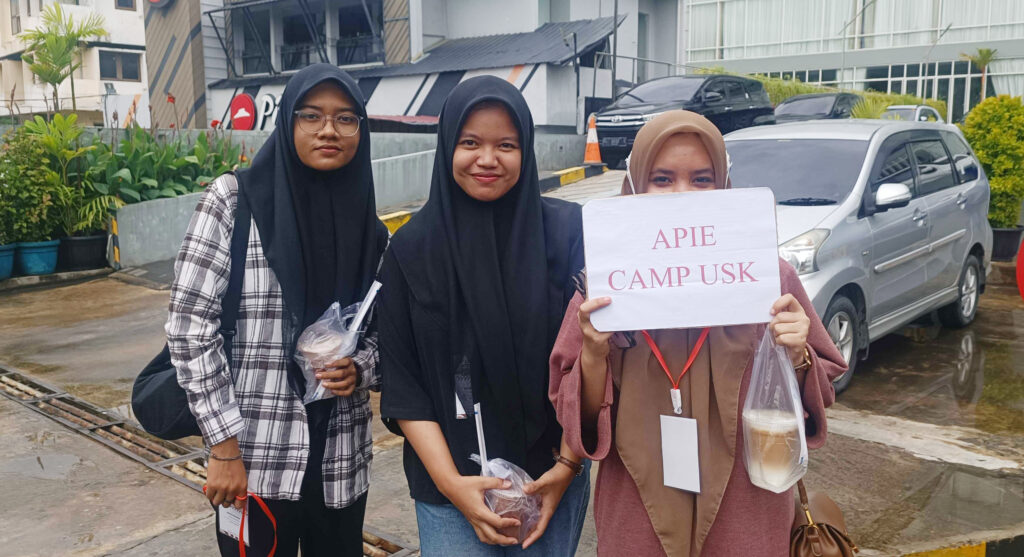
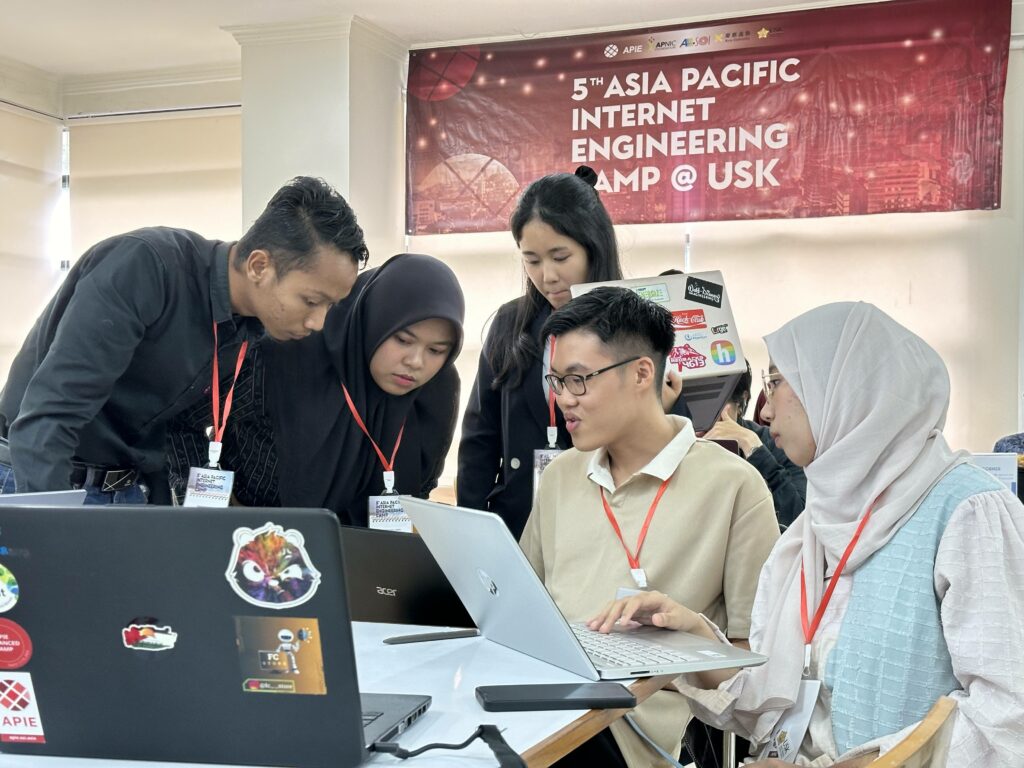
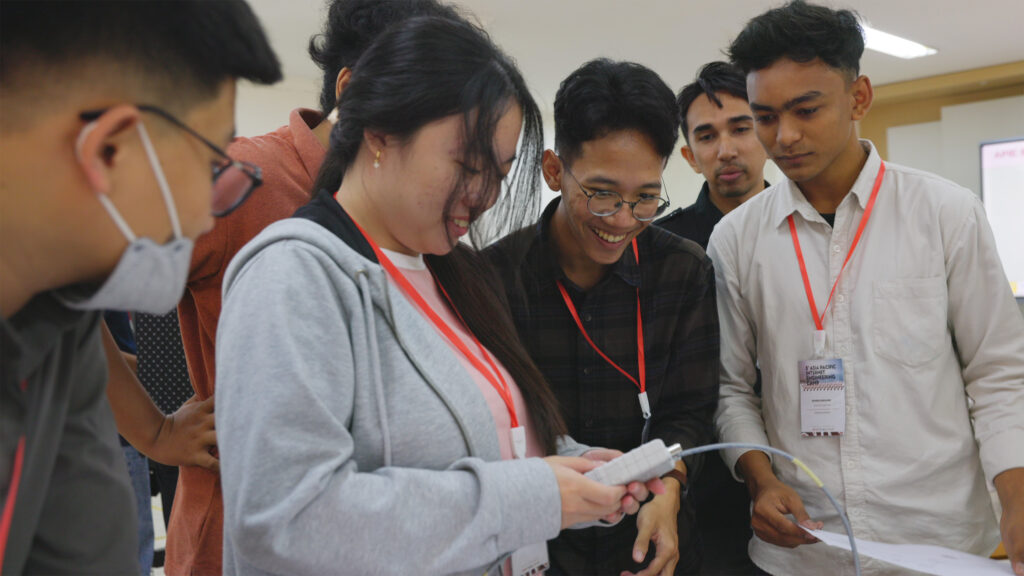
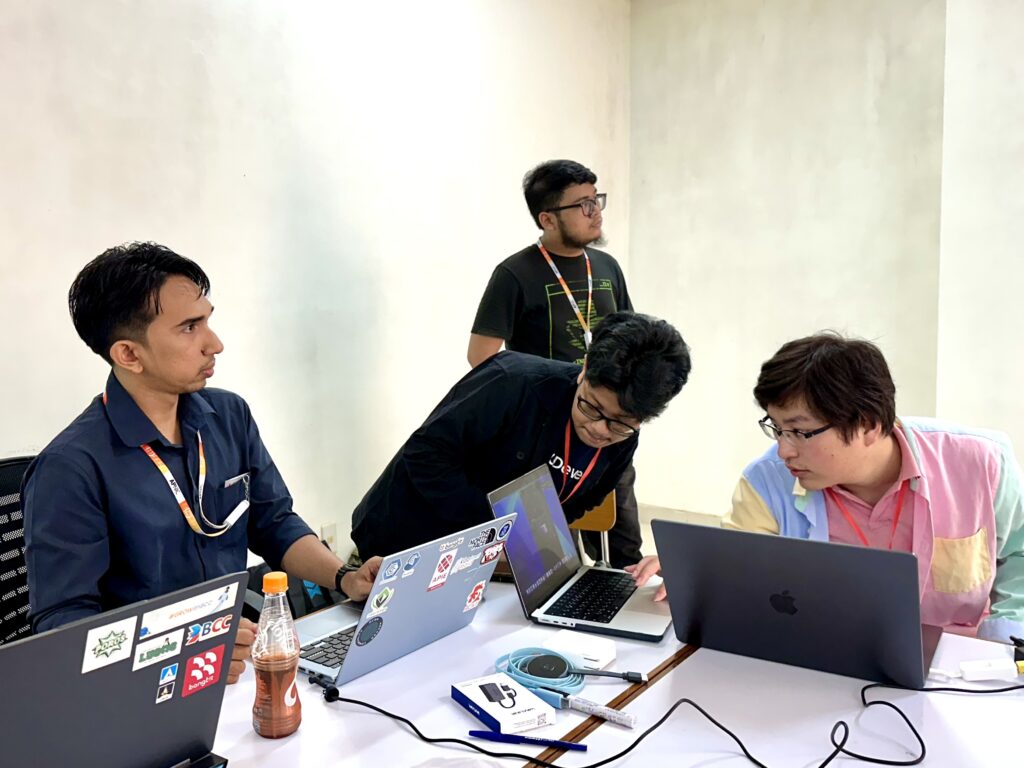
The main focus of the APIE Camp, as in previous editions, was on building and configuring a campus network. Participants worked with real-world networking technologies, including actual IPv4 and IPv6 from AI3 (Asian Internet Interconnection Initiatives), to connect routers and configure DNS servers that could resolve global domain names. In addition, an overlay network utilizing VPN technology was established to extend this experience to partner universities across the SOI Asia community.
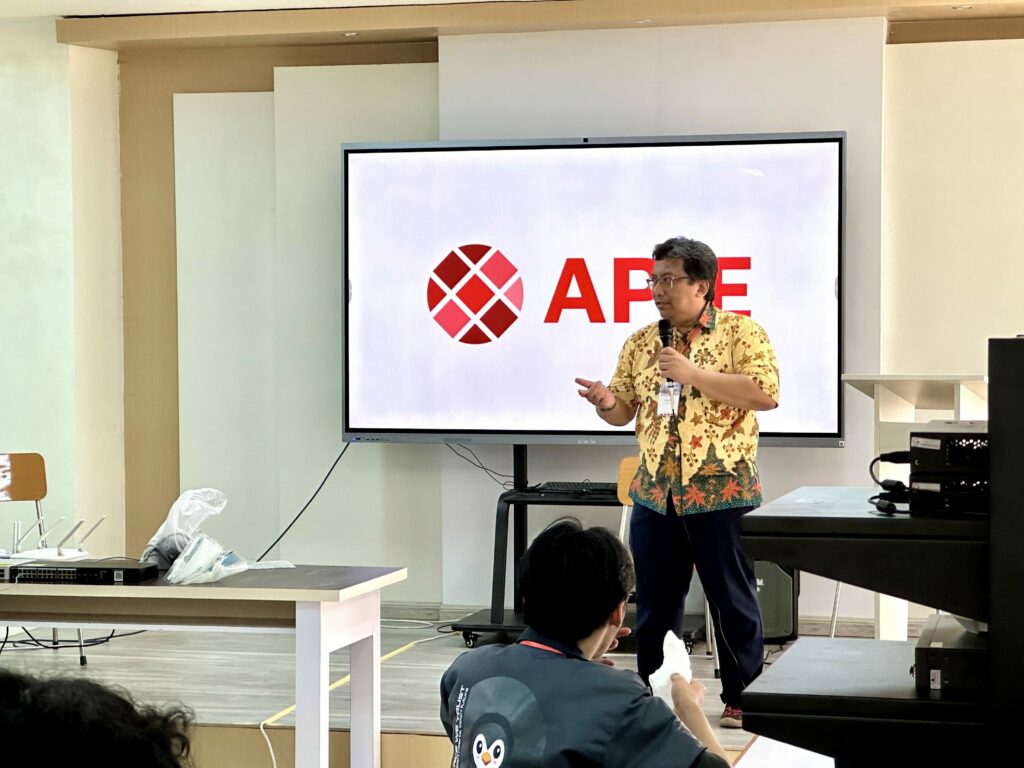
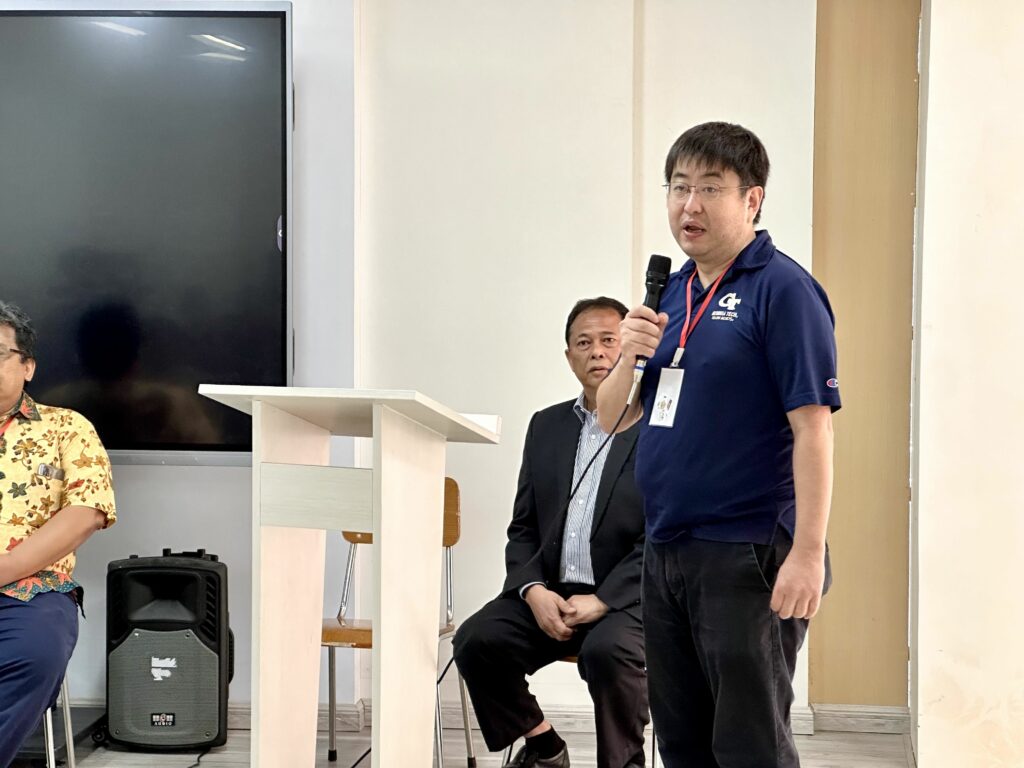
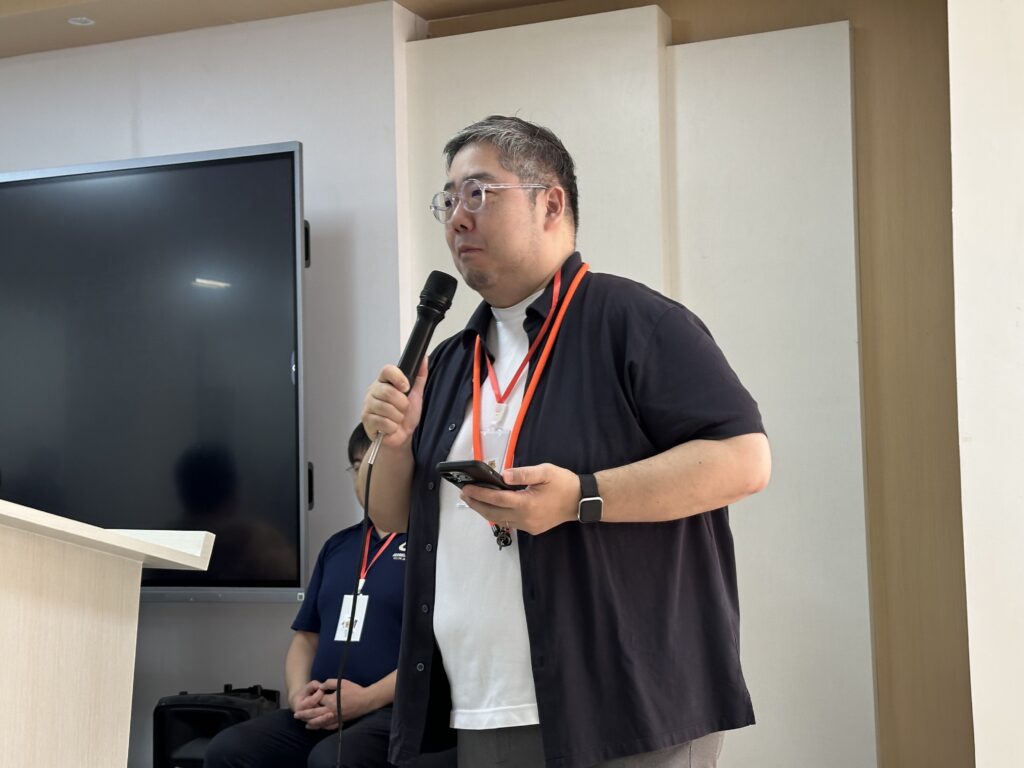
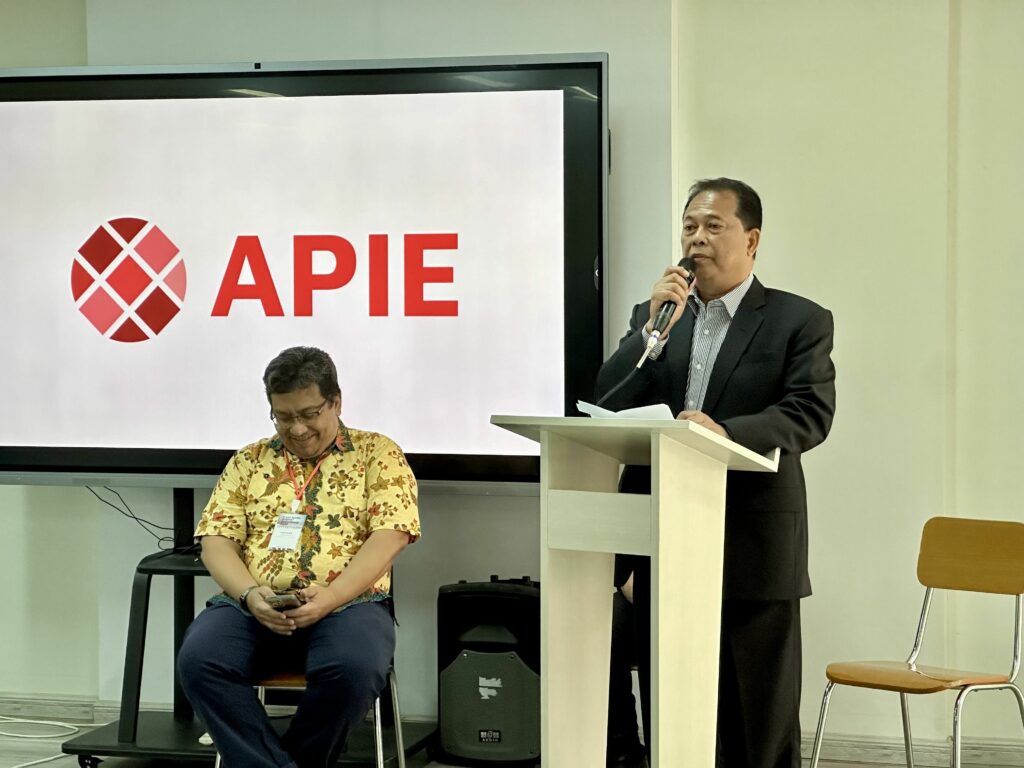
Dawood (USK) opened the camp addressing welcome greetings and provided details of this program. Noriatsu Kudo (Keio University and APIE program lead) emphasized the value of this program, and together with Marcos Sadao Maekawa (APNIC Foundation) shared tips on how to take away the best experience. Prof. Agussabti, (USK Vice Rector for Academic Affairs) delivered an inspiring message stressing the importance of global collaboration and fostering new talents in this field.
After icebreaker activities conducted locally, the 5-day curriculum started and covered the following topics:
- DAY 1: Network design and deployment
- DAY 2: Server installation and virtualization, cybersecurity
- DAY 3: DNS setup
- DAY 4: IoT and Cloud Computing (AWS)
- DAY 5: Site visit: Aceh Province Data Center
Check the photo galleries for other highlights of the camp.
Day 1: Network design and configuration
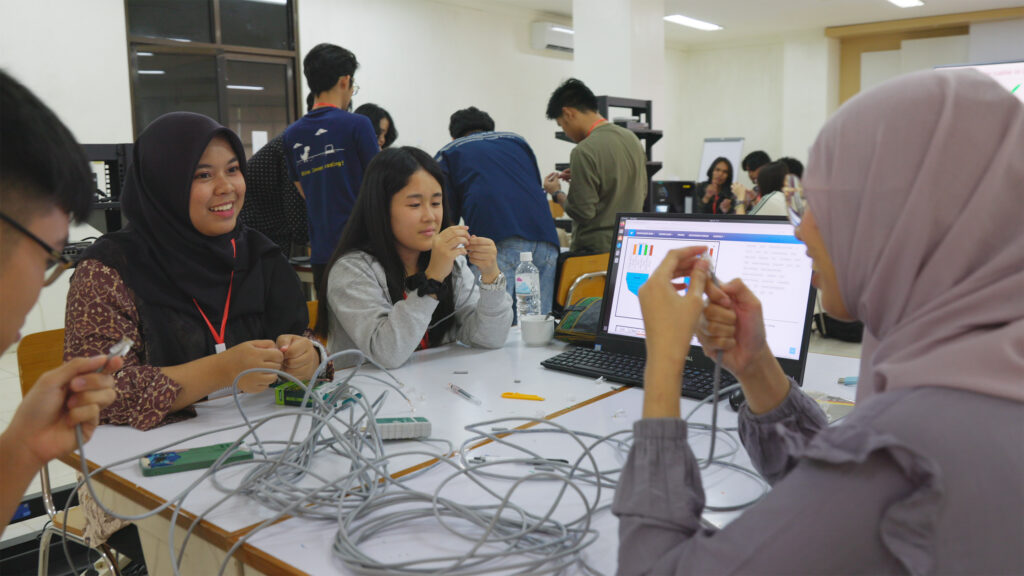
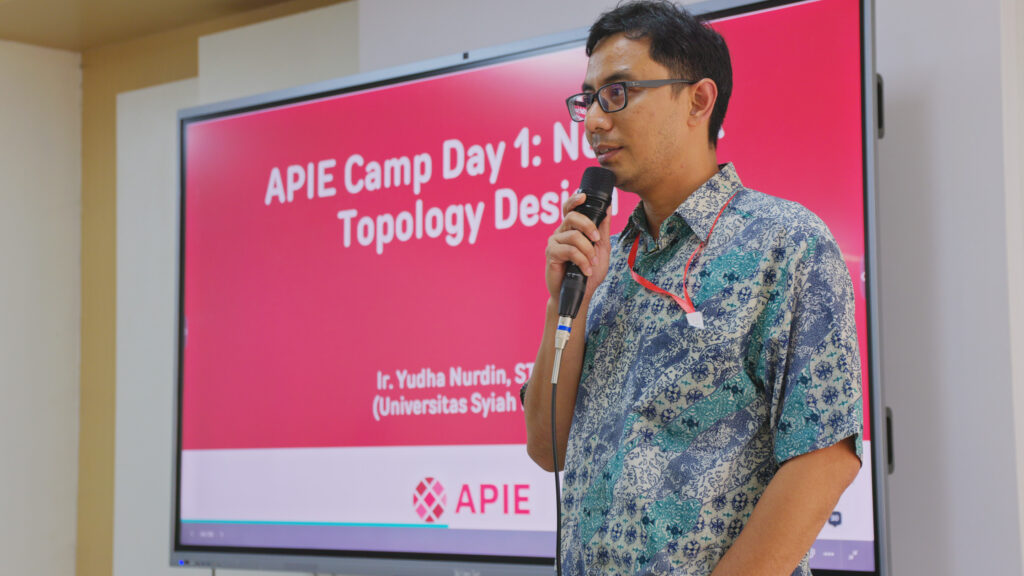
Day 2: Server installation and virtualization
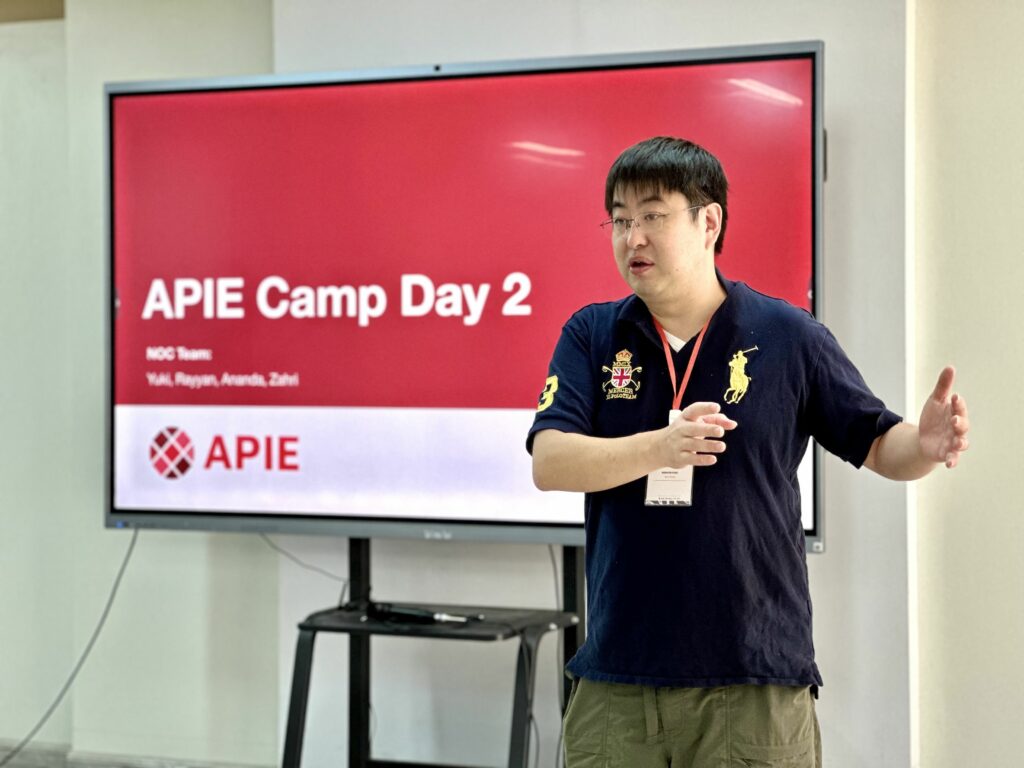
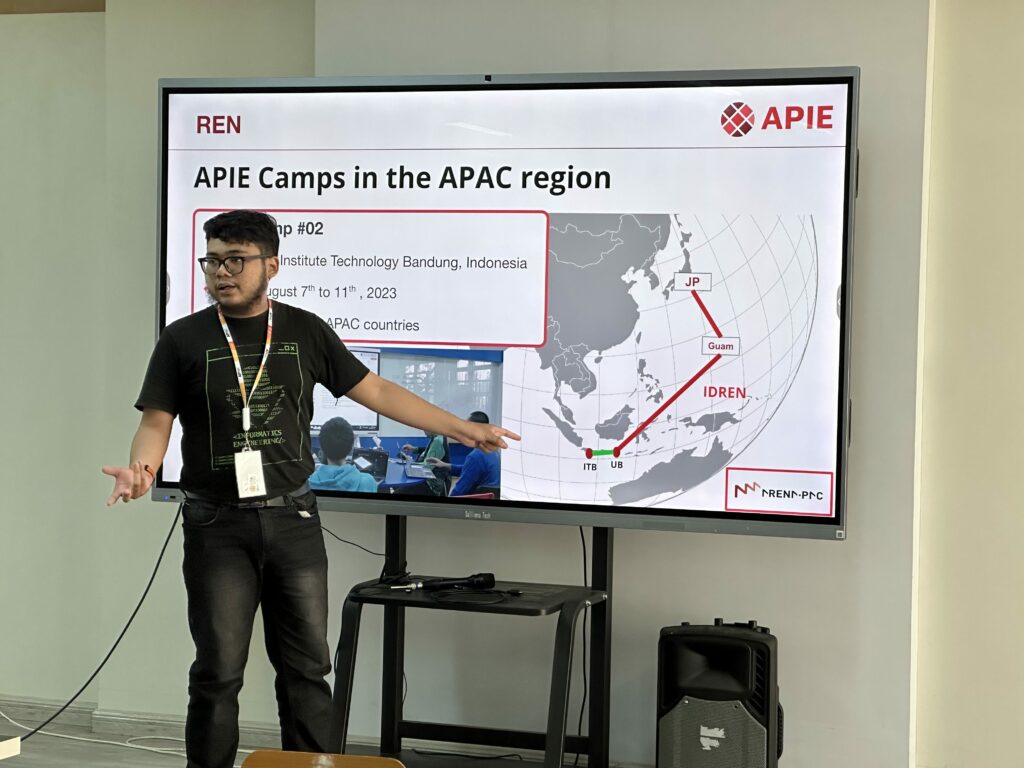
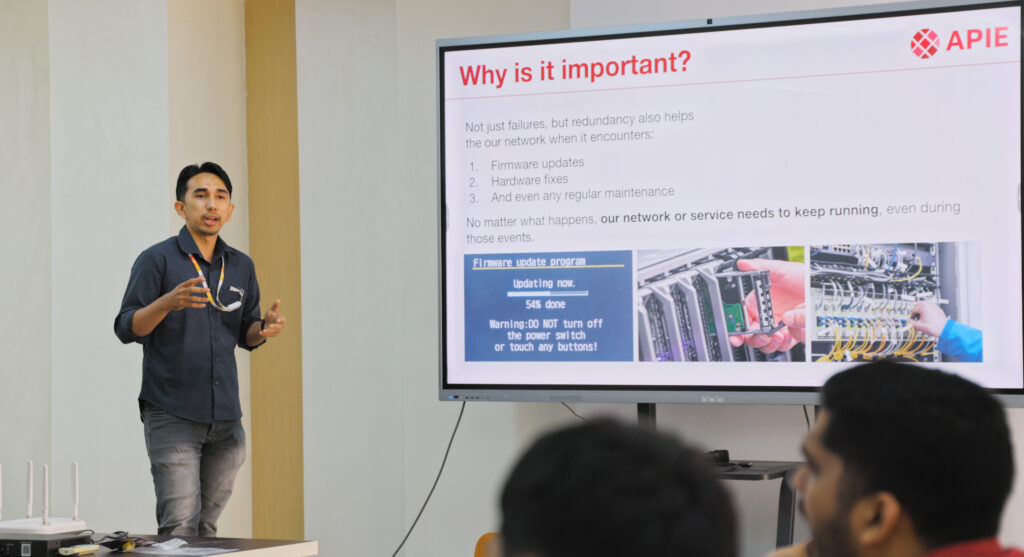
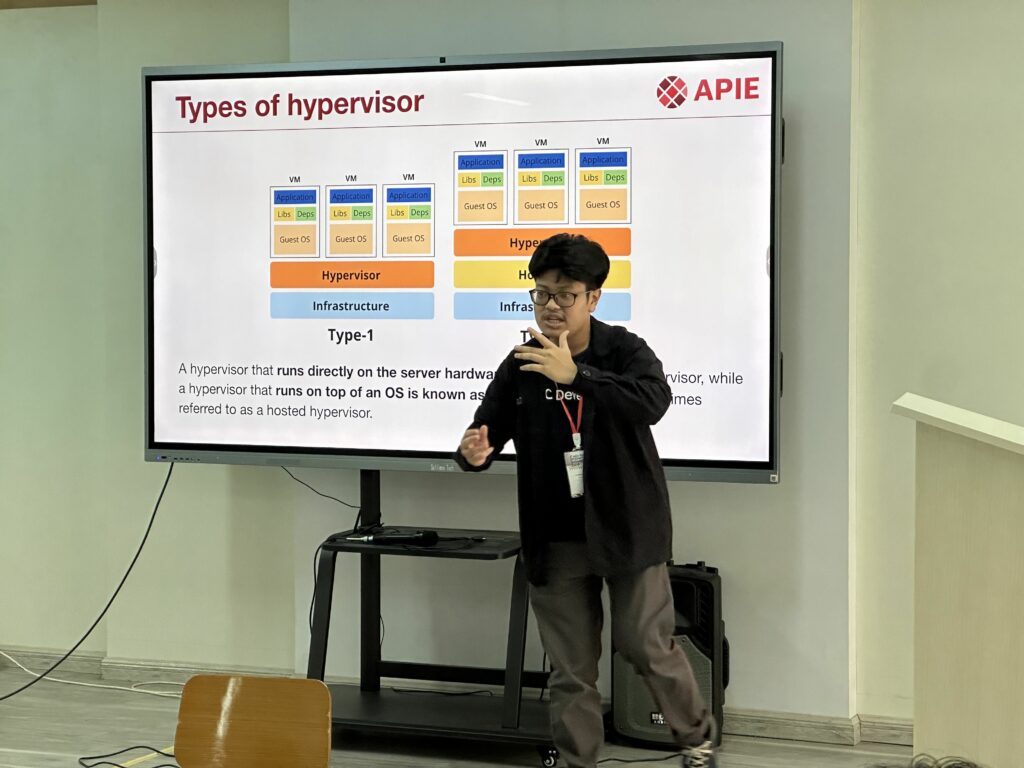
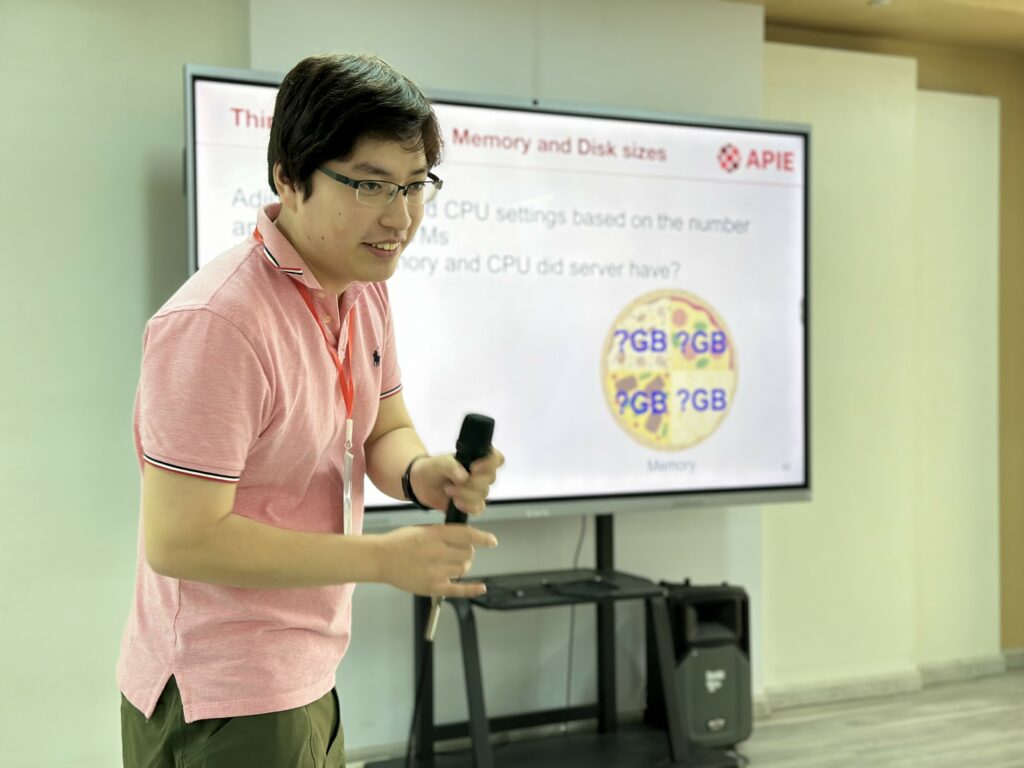
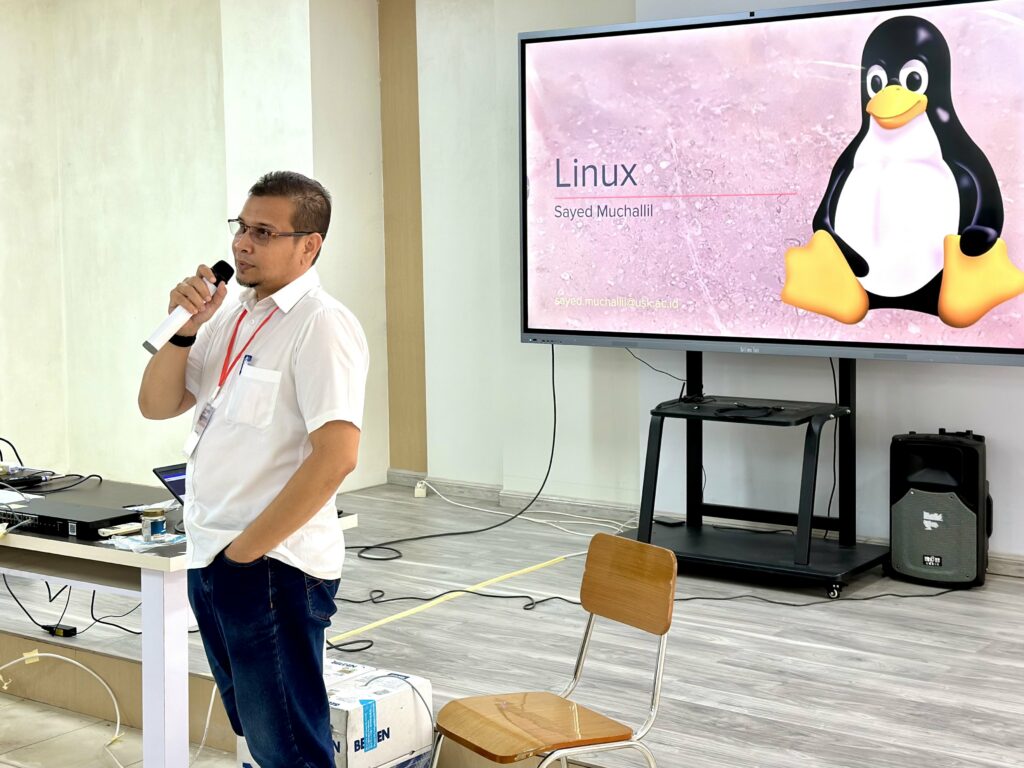
Day 3: DNS setup
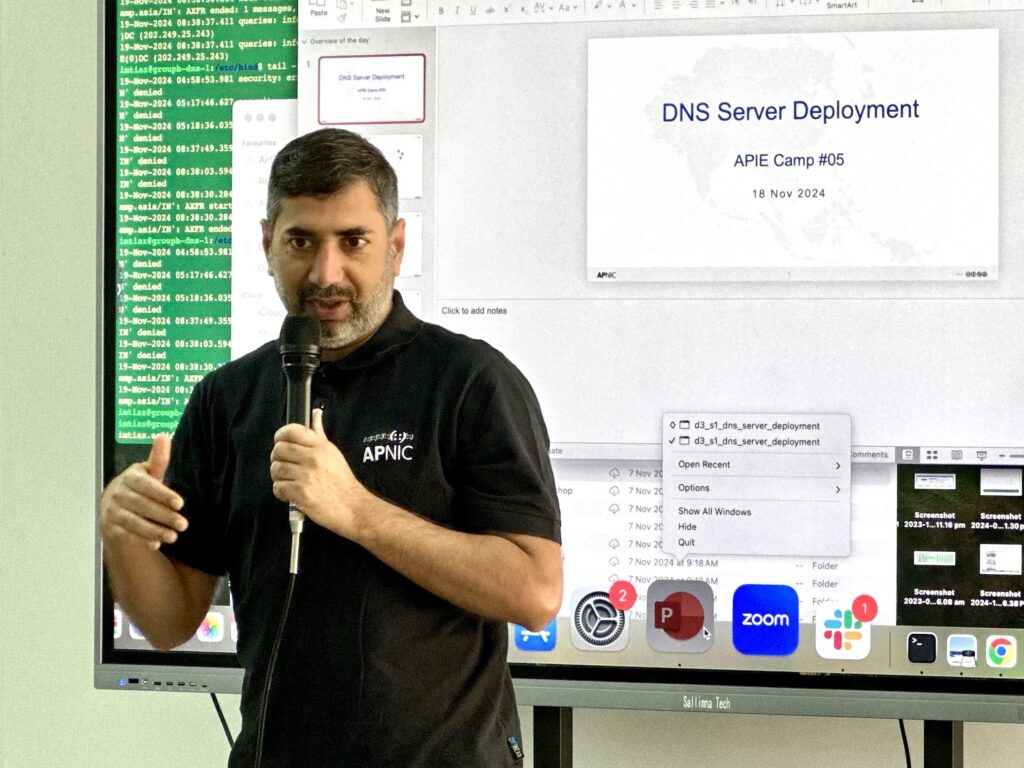
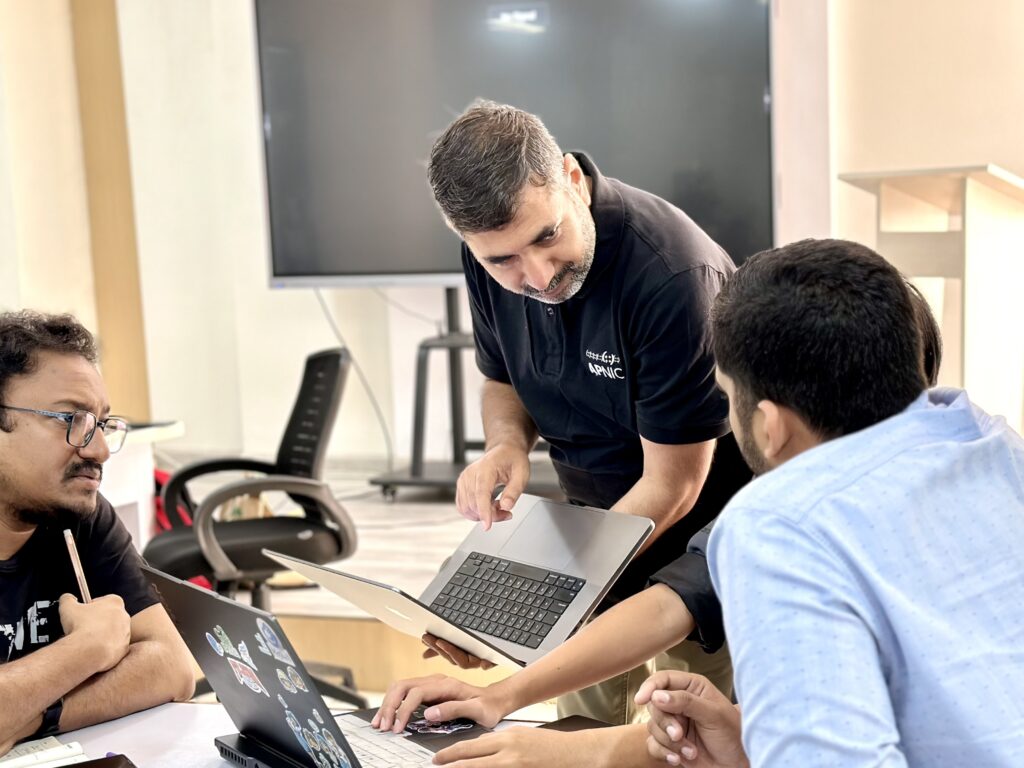
Day 4: IoT and cloud computing
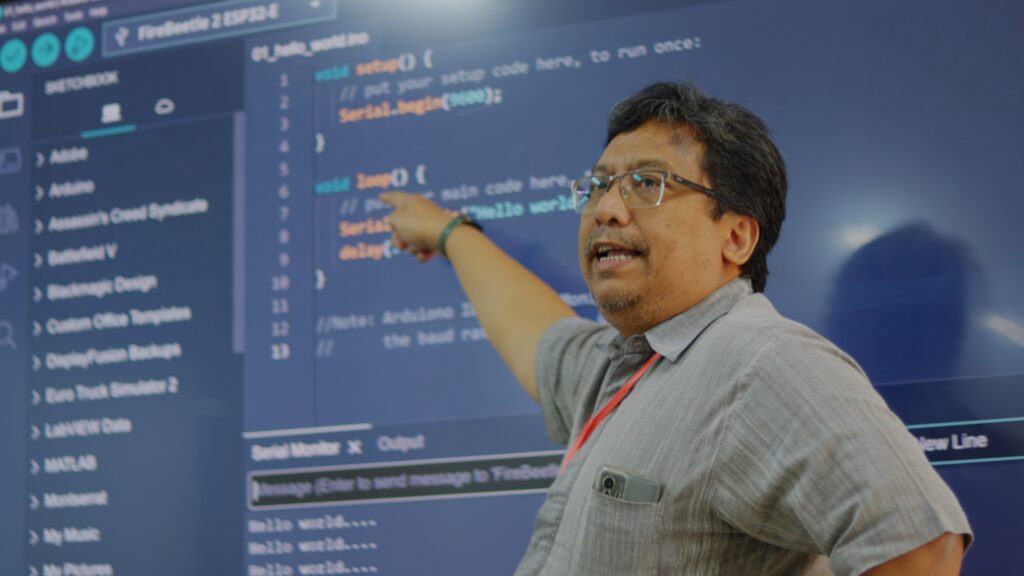
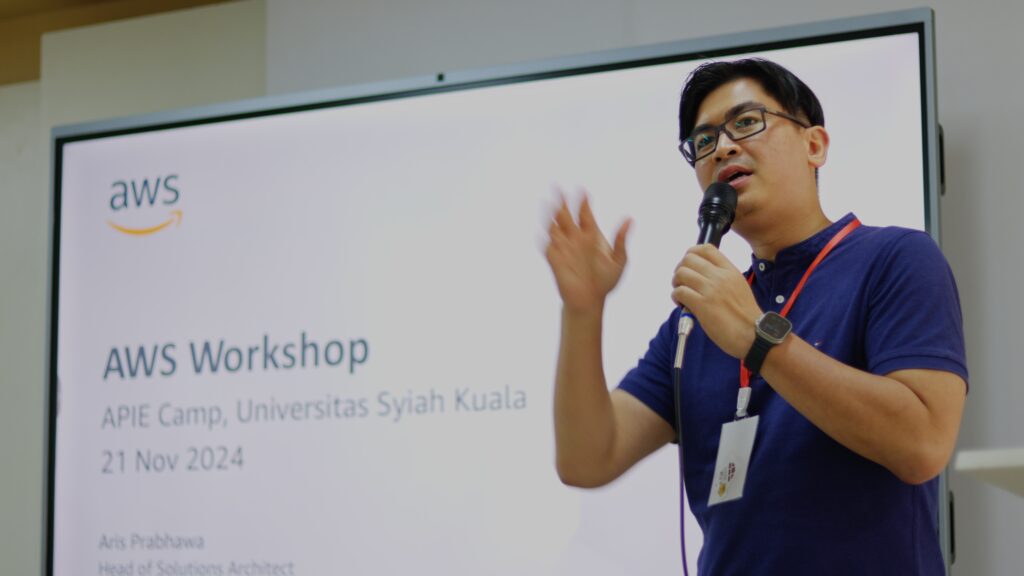
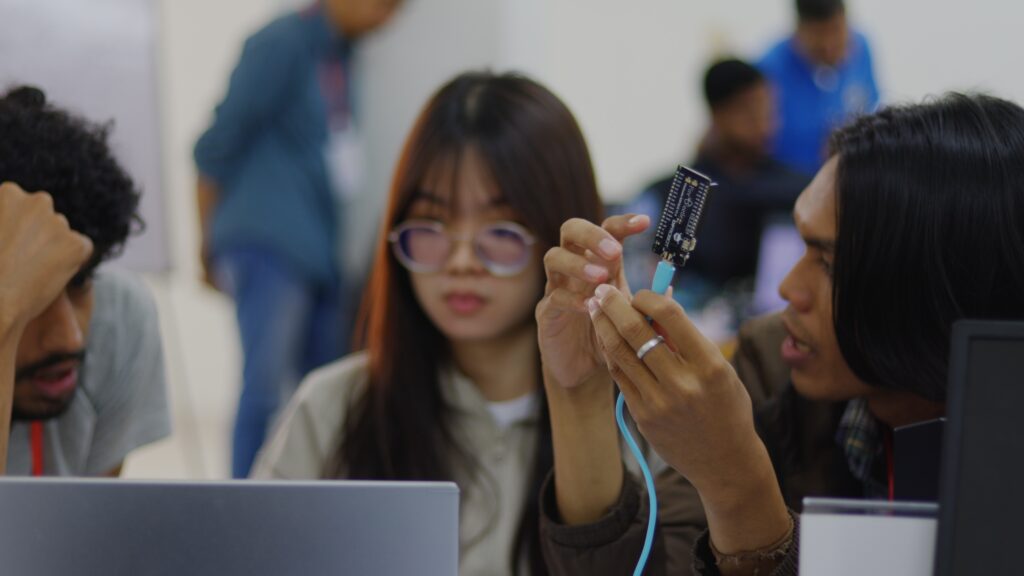
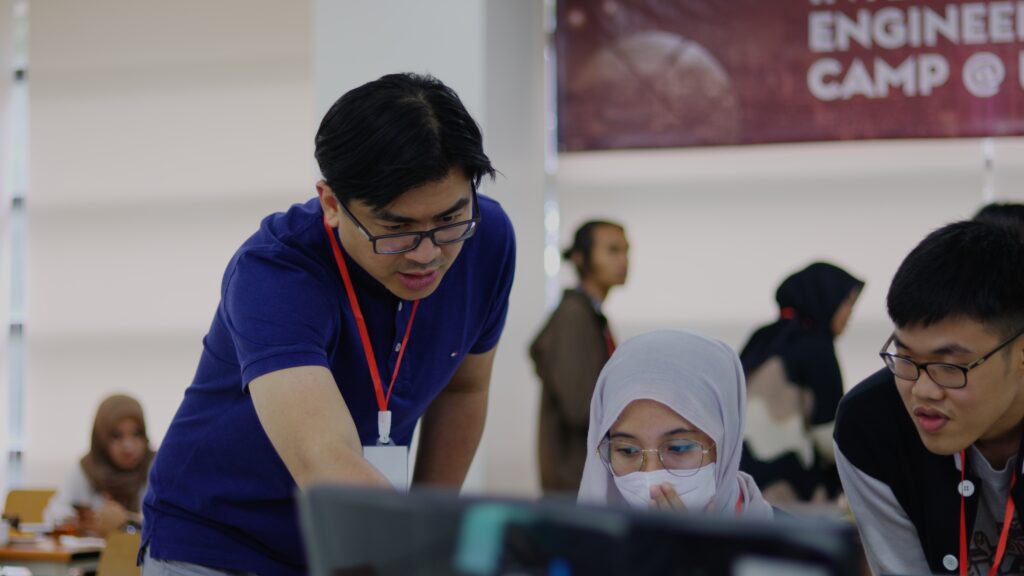
Day 5: Site visit
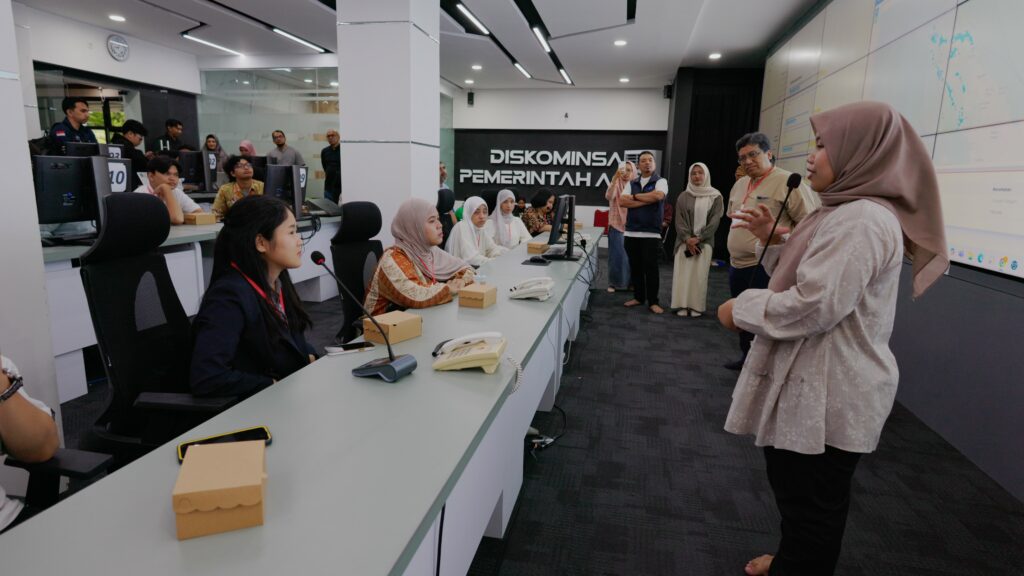
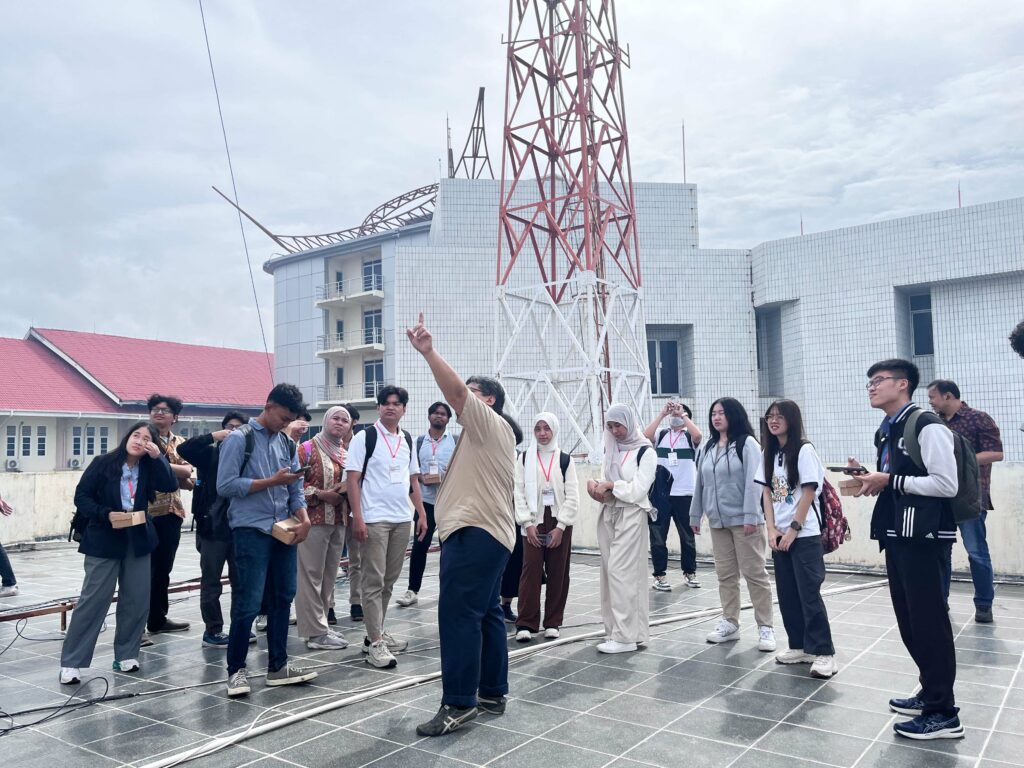
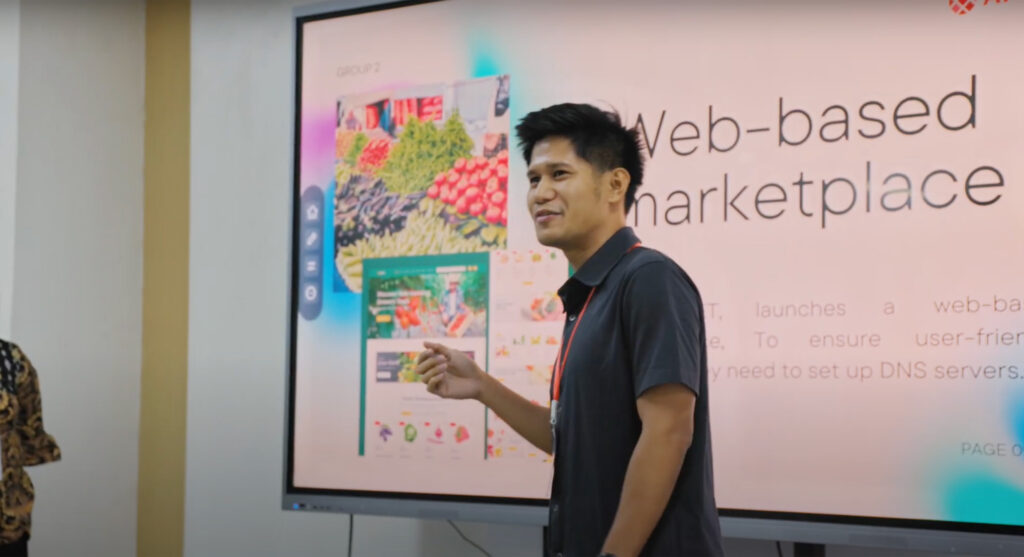
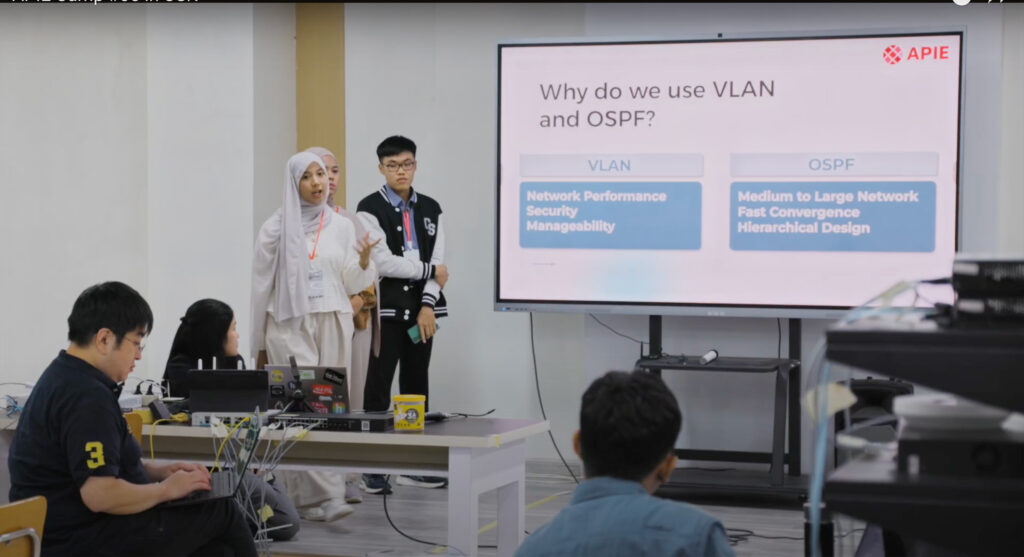
Closing Ceremony
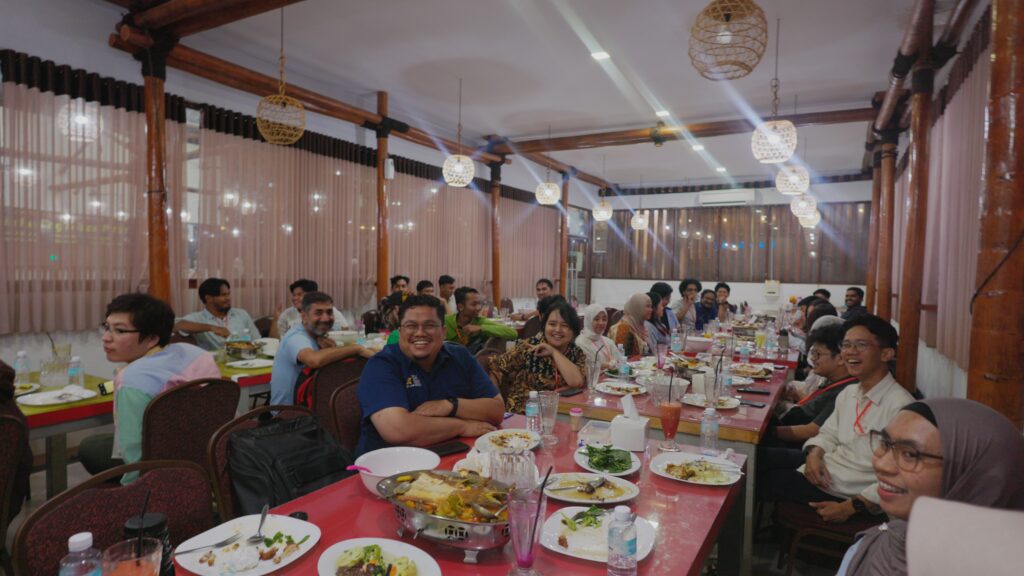
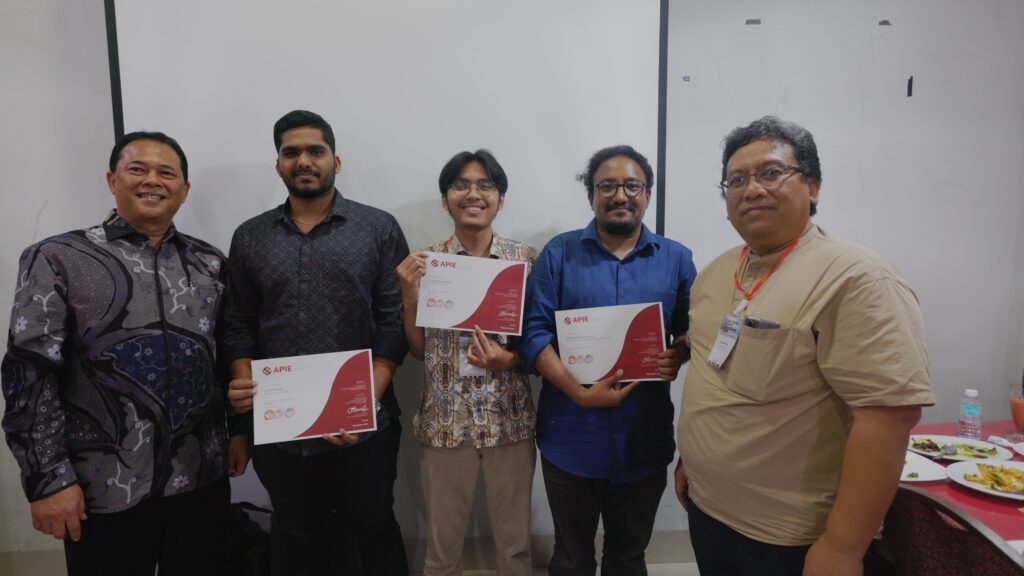
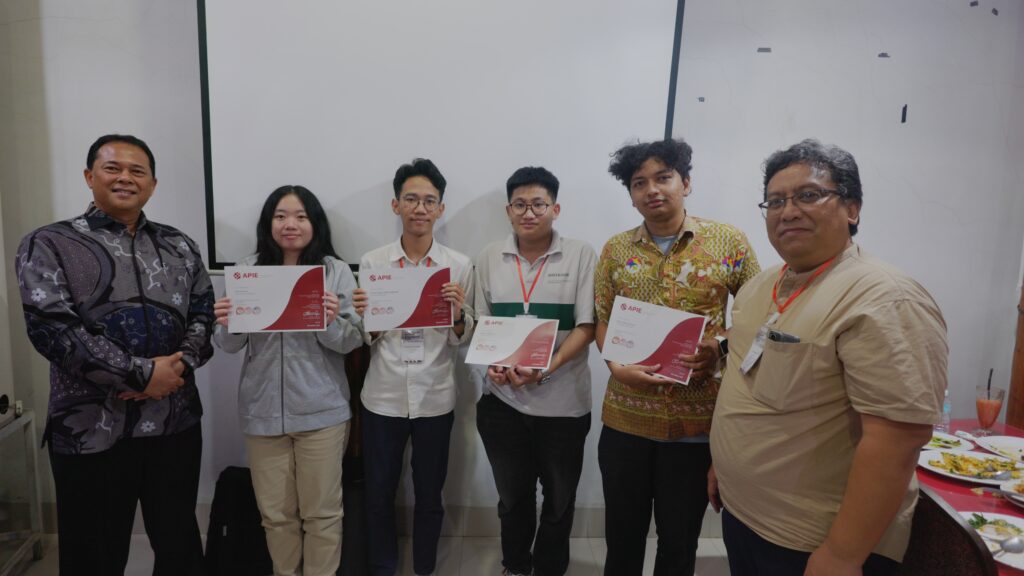
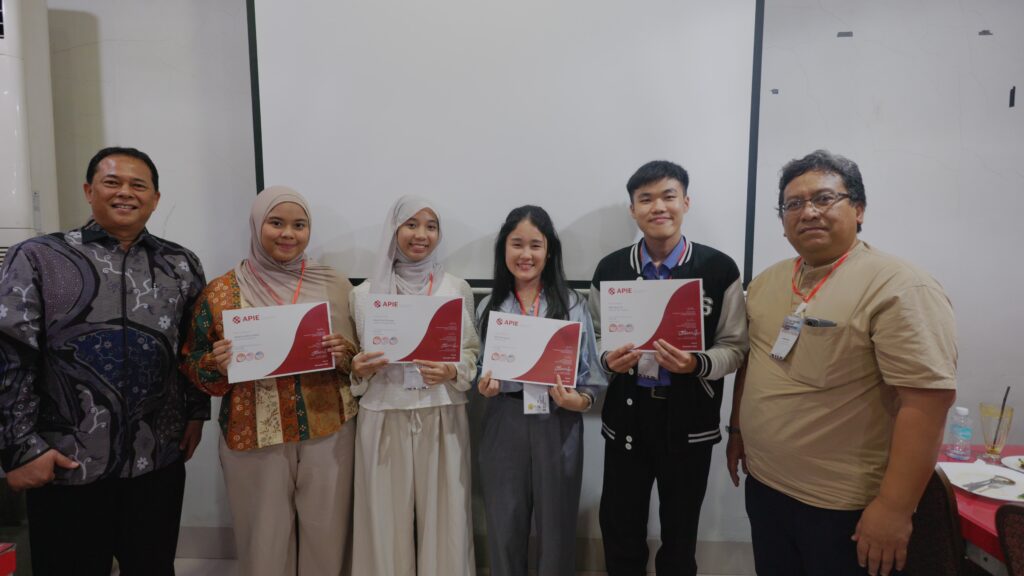
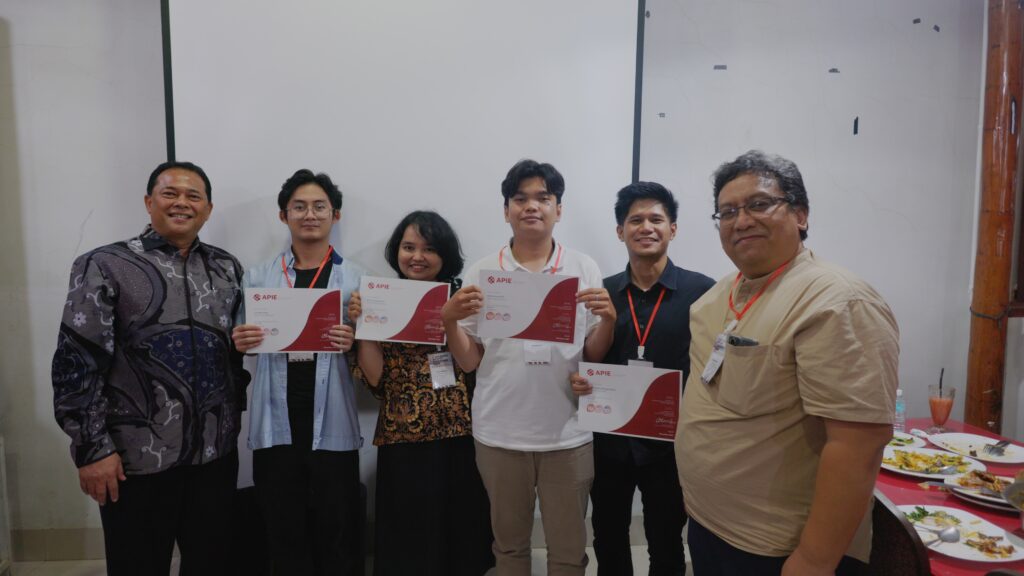
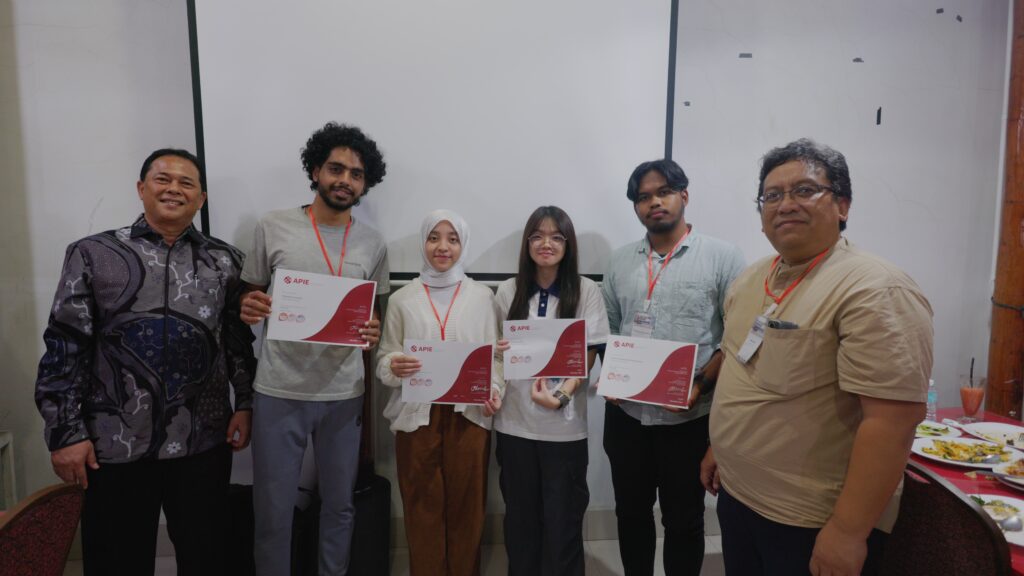
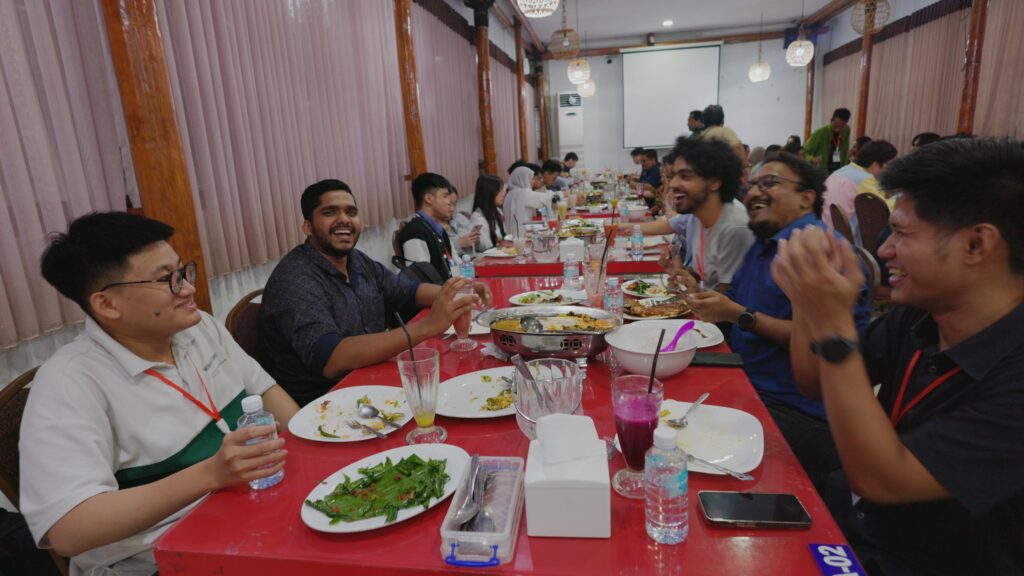
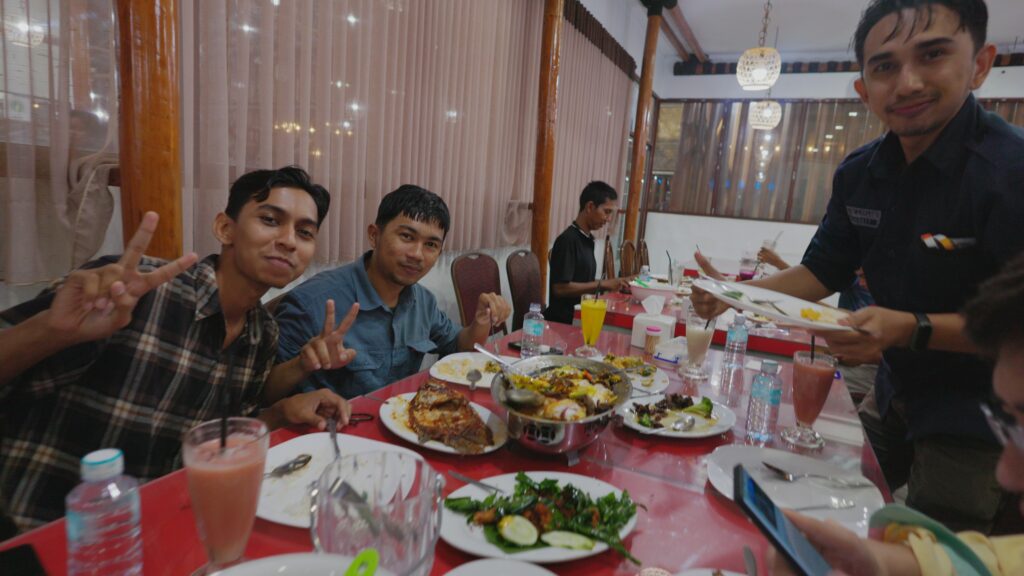
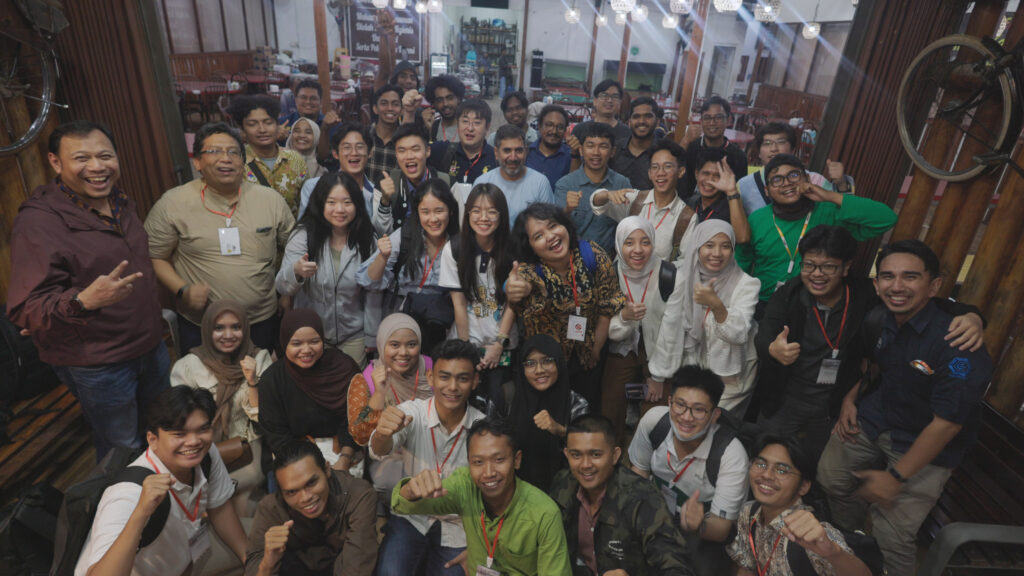
APIE Camp celebrates women in technology
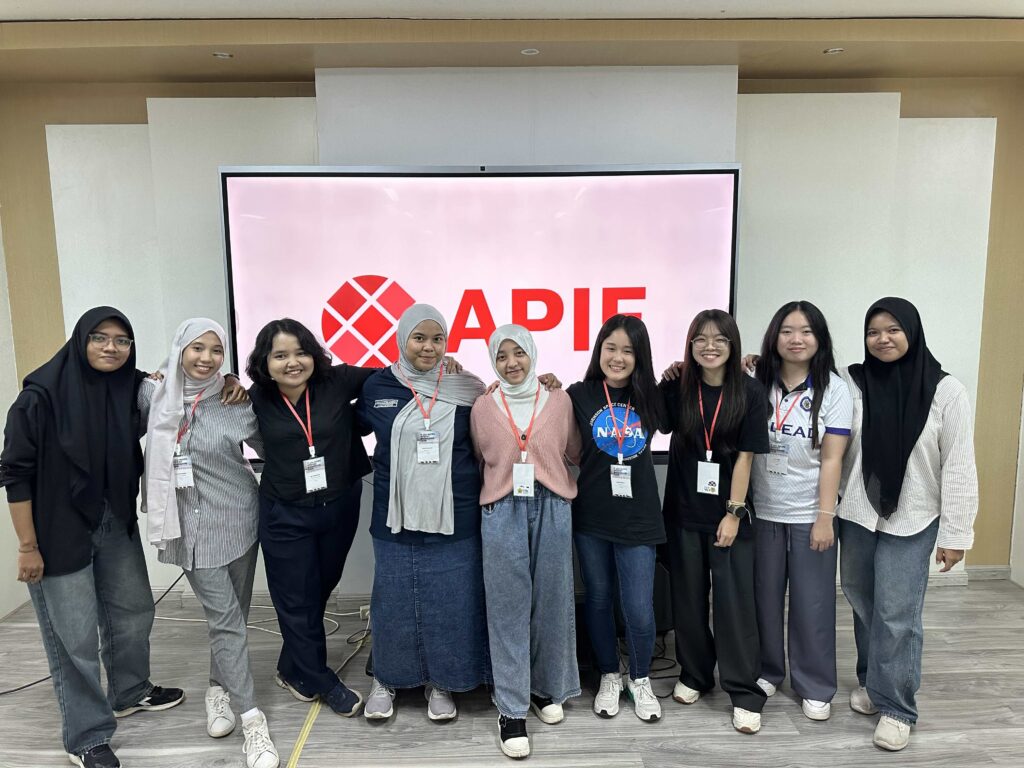
A particularly heartwarming highlight of the camp was its emphasis on diversity. Despite the ongoing gender gap in STEM fields globally, this year’s camp was proud to have welcomed 7 female participants. This aligns with the ongoing efforts of the SOI Asia community to support and promote the participation of women in technology, particularly within APIE activities.
Final presentations
On December 4, teams delivered their final presentations, showcasing the technical skills they had acquired over the course of the event. From designing network topologies and setting up virtual environments to exploring cloud and IoT technologies, participants demonstrated not only their technical acumen but also their creativity in presenting complex ideas in engaging and accessible ways.
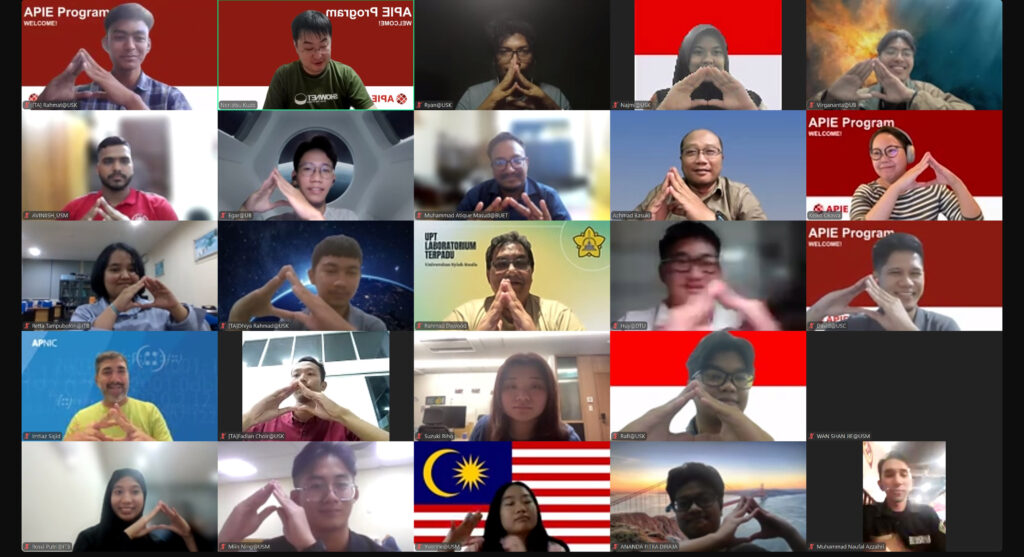
Even those without a technical background could appreciate the ingenuity and enthusiasm each team brought to their presentations. It was a demonstration to the campers’ hard work and the effectiveness of the APIE curriculum in developing both technical skills and communication abilities.
What is next?
The APIE courses is an ongoing initiative, held multiple times a year, and continues to provide opportunities for students to develop crucial networking skills in a global context. For those interested in participating, more details are available from your institution’s SOI Asia representatives or on the APIE website. Stay tuned for updates on upcoming camps, as the APIE community continues to empower young minds in the world of network engineering.

